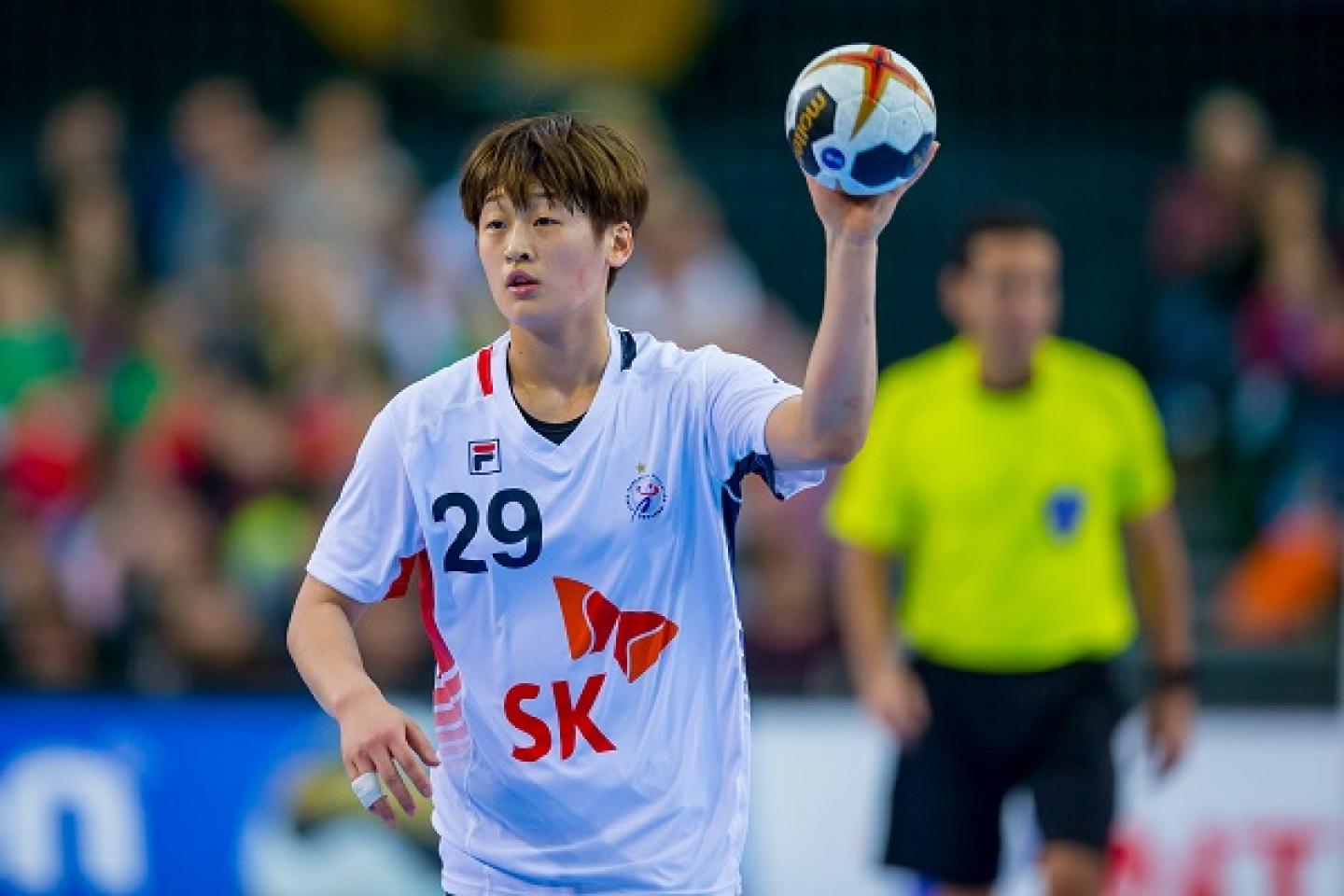A bright future for Republic of Korea
07 Dec. 2017

1995 world champions and 13-time Asian title holders Republic of Korea are something of an unknown at every tournament. Having consistently ranked in the top four teams at every Olympic Games since 1984, aside from a 10th-place finish in Rio de Janeiro in 2016, the team are always a threat with their unique style of play that makes them a difficult opponent.
At the 23rd IHF Women’s World Championship in Germany, Korea have the chance to win Group D – if Germany lose to 2015 runners-up The Netherlands and the Asian side defeat Serbia on the last preliminary round match day on Friday. The team enter Round 5 with six points on the table, following victories against The Netherlands, Republic of China and Cameroon, as well as one loss, to the hosts.
“Overall the games were not bad – we won the first match, but the problem is we lost one of our best players, Ha Na Gwon, so I’m worried about that. Overall, I’m satisfied. We are having a match against Serbia and we need to have a good result there,” says coach Jae Won Kang. “After we see the group situation we can think about the next match. At the least, I am thinking about going to the round of 16 with second or third place, so we will prepare well for the next match.”
Korea’s results can be considered quite impressive considering the young age of their squad, which averages at just 23. The youngest player on their list of 16 is Ji In Jung, who is only 17.
“Our handball federation is looking forward to the future. That’s why we brought the young players,” says Kang, who identifies 18-year-old Hyesoo Song and 185cm line player Eunhye Kang as two players to watch for the future. “With our young players, we can give them the experience for the next World Championship.
“We will give them experience and then we can focus on 2019 and 2020. We can look forward with those players.”
Three decades of continental dominance
Since the first Asian Championship was held in 1987, Korea have claimed all but three titles at the bi-annual tournament. At the three where they did not take the trophy, they placed second in 2002 and 2010, and third in 2004. As such, Korea’s success on the global stage is remarkable considering they the lower level of competition they face in their own continent. Korea must therefore look outside Asia to continue improving.
“In Asia, China and Japan have head coaches from Europe, but they are still not at that level,” says Kang. “The main thing I am focusing on is trying to send our players to Europe.”
High-scoring history at Junior and Youth World Championships
No less than four players in the current list of 16 come from the 1996-born generation, who ranked seventh at the 2016 IHF Women’s Junior World Championship and fifth at the 2014 Youth World Championship. Both times, Korea lost the quarter-final to Germany – but had the consolation of celebrating the top scorer of the tournament. In 2016, it was centre back Jieun Song, with 85 goals, and in 2014, it was right wing Sojeong Yu, with a tally of 81.
Jieun Song says the main thing that is different about moving up to the open age category World Championship is the physical strength of the teams they face:
“Their strength and physicality are totally different. I had the opportunity to play against European players at the Youth and Junior [World Championship], but if I compare those players now, they have changed a lot,” says the 21-year-old, who shares her coach’s vision for a bright future when talking about her dreams for handball.
“It’s my first time to be in the national team [at Germany 2017]. My first hope is that I am selected for the team for the Olympics and play in the matches. Then I want to win the Olympics.”
Korea play their Round 5 match against Serbia on Friday, December 8 at 20:30 local time in Leipzig.

